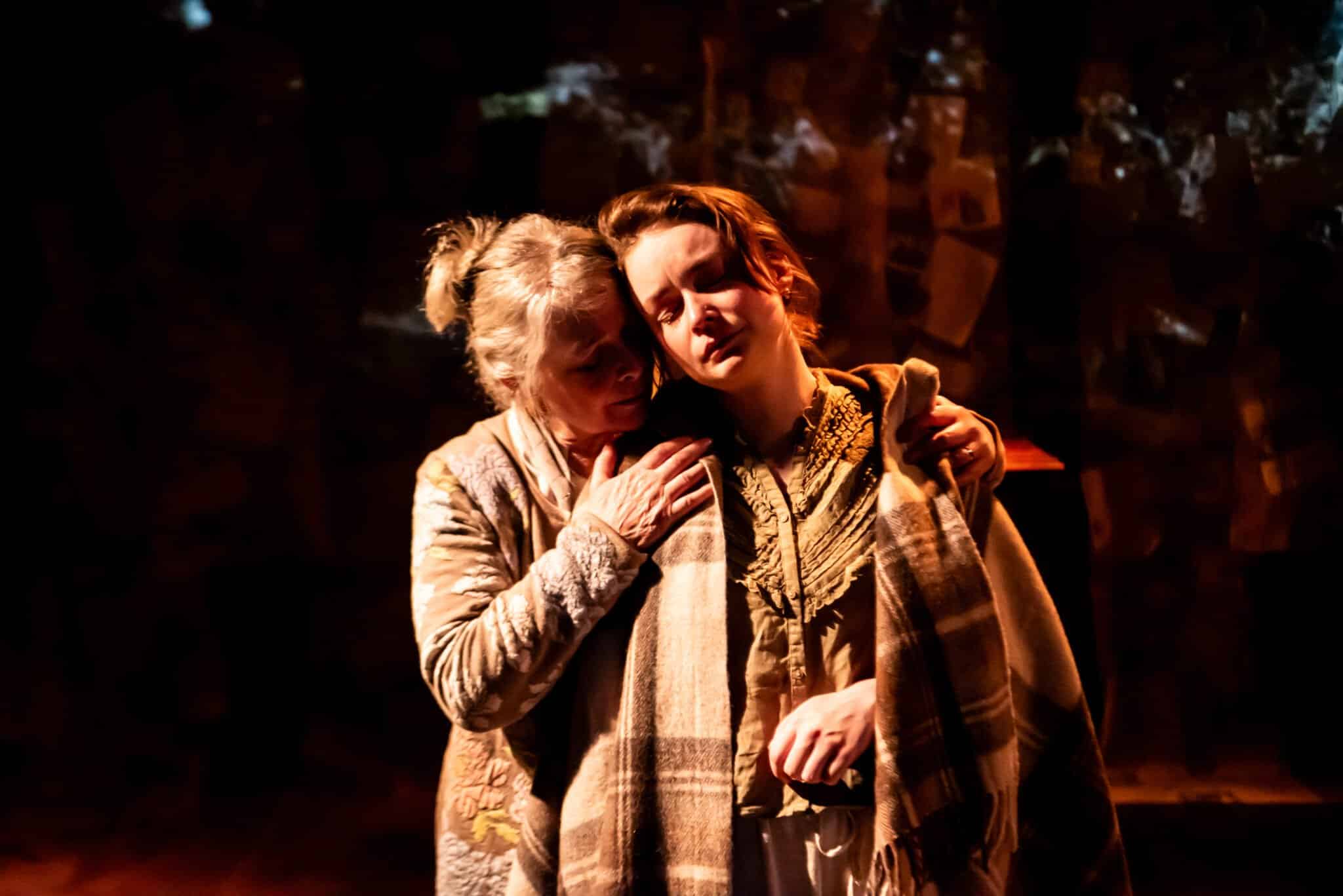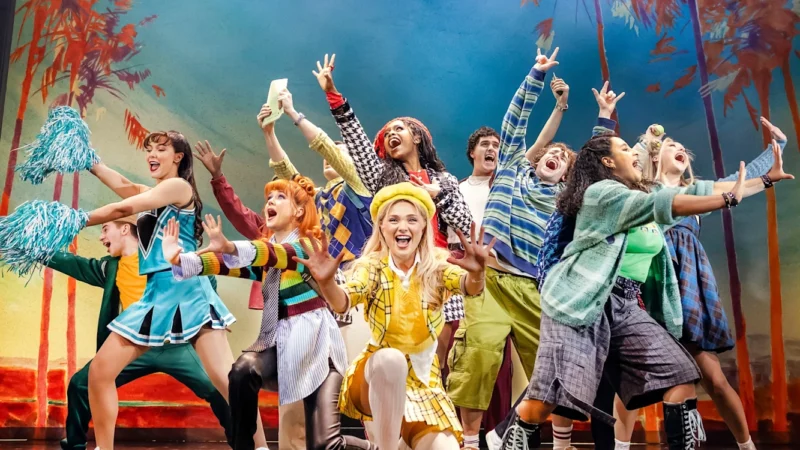Arcola Theatre
Breathing: involuntary, critical, and often taken for granted. Diane Samuel’s premiere starts with the familiar in-and-out heaving of meditation. Gonging steel pan drums and a lead facedown in lotus position unfurl to a convulsive tale of Europe’s greatest shame and the essence of life itself.
Isabella Van Braeckel proves that a basement doesn’t have to be limiting. Her set is protean, lurching between Eastern Europe and London, dream, memory, and reality. Three pieces of furniture place us in the earlier part of the 20th century and delicate gauze strips tumble from the ceiling at the back of the stage. Papers and letters trapped like flies in a spider’s web within them. Just a pretty backdrop? Oh no no, Tom Turner’s lights and Douglas Baker’s video work utilise these strips to make a fractured screen for the infrequent but punchy projection work.
In this domestic Buddhist-inflected space we meet Miriam Freedman/ Mannheimer (Caroline Gruber). A real-life woman of exceptional resilience and drive to define herself after her families tragedy during the holocaust. Discovering meditation and spirituality later in life after her move to London she returns and faces her trauma with us breathlessly witnessing. Zoe Goriely plays the younger Eva (Miriam’s second non-Jewish name) and together they vault through their joint tale. Goriely with exuberant energy and explosive child-like dashing and Gruber with the aches, pains, and hoarded wisdom of age. Both are faultless throughout. Matthew James Hinchliffe fiddles away stage left on various instruments, theatricalising our breathing efforts throughout with the hiss of his clarinet.
It is a sleek operation, gliding from the emergence of yoga in England, then seamlessly weaving in flashes of the Nazi’s rise to power in Slovakia. As if transmitting through a superconductor suddenly we are in height the holocaust, heartbroken and revolted at the atrocities. Dread is less built and more ignited around us, as jaws drop, stomachs flip and eyes moisten.
Ben Caplan (director) and Titania Krimpas (dramaturg) have crafted a curious and questioning piece with such scope. Focusing on arguably the worst period in human history, but also the kindness of some of the people in Eastern Europe at the time. It is cosmic but with feet firmly planted on terra firma. Deeply heartbreaking and soaringly uplifting, reminding us to live fully and always to progress. It leaves you panting, exhausted but grateful for every gulp of air and determined to make them count, not bad for a subterranean Wednesday evening.



